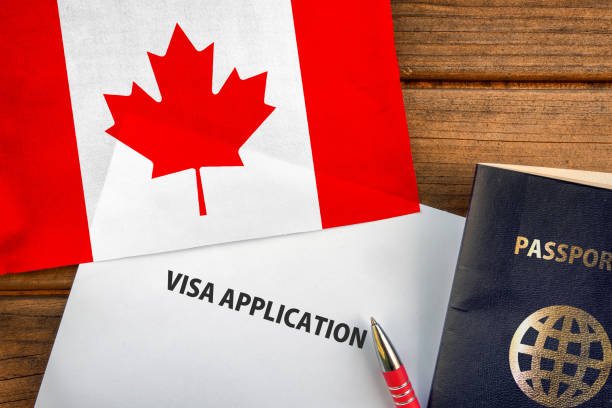Caregiver Jobs in Canada with Visa Sponsorship in 2025: How to Find, Apply, and Get Hired Legally
Are you compassionate, patient, and ready to build a better future abroad? Canada is welcoming thousands of foreign caregivers with open arms, and a pathway to permanent residency. With an aging population and a growing demand for home support, caregiver jobs are now among the most secure and sponsorship-ready employment options for immigrants. If you’ve ever dreamed of living in a safe, developed country while making a difference in someone’s life, this might be your golden opportunity.
Aging Population and Shortage of Local Workers
A significant increase in Canada’s senior population has been observed in recent years. As a result, long-term care facilities and private homes have faced critical shortages of professional caregivers. Local labor has not been sufficient to meet the demand, leading employers to seek talent abroad.
Canada’s Commitment to Welcoming Foreign Caregivers
Special immigration programs have been created by the Canadian government to attract qualified foreign caregivers. These programs have been designed to offer job opportunities, as well as permanent residence pathways. The demand for compassionate, trained, and reliable caregivers has continued to rise in 2025.
Job Stability and a Clear Path to Permanent Residence
Caregiver positions have been known for their long-term nature. Unlike seasonal jobs, caregiving roles are tied to ongoing household or facility needs. With programs like the Home Support Worker and Child Care Provider Pilots, skilled caregivers have been offered the chance to apply for permanent residency after gaining Canadian work experience.
Types of Caregiver Jobs Available in Canada
Home Child Care Providers (NOC 44100)
Caregivers who provide support to children within private residences have been classified under this job code. Duties typically include preparing meals, supervising activities, and maintaining a safe environment. Some employers may require caregivers to live on-site, while others prefer live-out arrangements.
Home Support Workers for Elderly or Persons with Disabilities (NOC 44101)
This role has involved providing physical and emotional support to elderly individuals or those with disabilities. Responsibilities may include assistance with hygiene, mobility, medication, and companionship. Experience with dementia or special medical conditions has been seen as an asset.
Live-In vs. Live-Out Caregiver Positions
Live-in caregivers are expected to reside in the employer’s home, while live-out caregivers travel daily. Each arrangement has its advantages. Live-in roles often come with free accommodation, whereas live-out positions offer more personal freedom.
Visa Pathways and Immigration Programs for Caregivers
Home Child Care Provider Pilot
This pilot allows caregivers to work in Canada and apply for permanent residence after 24 months of work experience. An LMIA (Labour Market Impact Assessment) is not required, but a valid job offer must be presented. Applications are processed through Immigration, Refugees and Citizenship Canada (IRCC).
Home Support Worker Pilot
Similar to the childcare pilot, this program supports those caring for seniors or individuals with medical needs. A job offer and basic qualifications are required. Permanent residency is granted once the 24-month work period has been completed.
Temporary Foreign Worker Program (TFWP)
Some caregivers enter Canada through the TFWP, where an LMIA is required from the employer. This program allows for temporary employment and, in some cases, provides a pathway to permanent residence through other immigration streams.
Permanent Residency After 24 Months of Qualifying Work
Once two years of authorized caregiver work have been completed, applicants may apply for permanent residence. Proof of hours worked, employer letters, and tax documents are submitted to IRCC as part of the process.

Eligibility Requirements for Foreign Caregivers
Minimum Education and Work Experience
A high school diploma (or equivalent) and at least one year of caregiving experience are typically required. Some employers may request additional childcare or eldercare certifications.
Language Test Results (IELTS)
Language proficiency must be demonstrated through an approved test such as IELTS. A minimum score of CLB 5 (Canadian Language Benchmark) is often required for caregiver programs.
Police Clearance and Medical Exam
Applicants must pass a background check and undergo a medical exam to confirm their fitness for caregiving work. These steps are mandatory under Canadian immigration law.
Proof of Job Offer from a Canadian Employer
A written job offer detailing duties, salary, and hours must be submitted as part of the visa application. The offer must be genuine and meet minimum labor standards.
How to Find Legitimate Caregiver Jobs in Canada with Sponsorship
Using Government-Approved Job Portals
Caregiver job listings can be found on official websites such as:
- Job Bank Canada
- Canada.ca Immigration Employment Portal
These platforms have been vetted and are considered safe sources for sponsorship-backed job listings.
Reputable Recruitment Agencies
Licensed immigration recruiters and staffing agencies specialize in caregiver placements. Caution should be exercised to ensure that agencies are recognized by Canadian provincial authorities and listed on public registries.
Directly Contacting Canadian Families or Employers
Applicants may also find caregiver jobs through community boards, online forums, or caregiver networks. Interviews can be conducted virtually, and references are often checked before an offer is extended.
Warning Signs of Fake Offers and Scams
Caregivers should never be asked to pay large fees upfront. Fake job offers often include unrealistic salaries, vague job descriptions, or requests for personal banking details. All job offers should be verified through official channels.
Step-by-Step Process to Apply and Secure a Caregiver Job
Prepare Your Canadian-Style Resume and Cover Letter
A caregiver’s resume should highlight relevant experience, certifications, and language skills. Canadian resumes are usually one to two pages long and are written in a results-focused format.
Get Documents Ready
Documents such as a valid passport, school certificates, police clearance, IELTS results, and letters of recommendation should be prepared in advance. All documents must be translated into English or French if originally in another language.
Apply Through Legal Channels
Once a job has been identified, the application should be submitted either directly to the employer or through a registered agency. Application forms for the caregiver pilot programs are available on the IRCC website.
Participate in Interviews
Employers may request a video call to assess the caregiver’s communication skills and personality. Background checks and reference calls are often conducted before a job is offered.
Employer Submits LMIA or Applies Under Caregiver Pilot
If the job offer falls under the Temporary Foreign Worker Program, the employer must secure a positive LMIA. Under the pilot programs, this step is skipped, but the employer must still meet eligibility criteria.
Living and Working as a Caregiver in Canada
Typical Job Duties and Work Environment
Caregivers are expected to manage hygiene routines, meal preparation, companionship, and occasional housekeeping. The work may be physically and emotionally demanding but is highly respected.
Average Salary and Working Hours in 2025
As of 2025, caregiver salaries in Canada range from CAD $35,000 to $50,000 annually, depending on location and experience. Working hours typically fall between 35 and 44 hours per week.
Worker Rights, Health Insurance, and Benefits
All caregivers in Canada are protected by labor laws. Health coverage is provided either by the employer or through the public healthcare system. Overtime pay, sick leave, and paid holidays must be honored.
Balancing Work with Personal Growth
Many caregivers pursue further education while working. Community colleges and language schools offer evening classes, and online certifications are available to enhance career growth.
Pathway to Permanent Residency and Family Sponsorship
How to Transition from Temporary Work Permit to PR
After two years of work under a caregiver pilot, permanent residency can be applied for. An updated medical exam and police clearance may be required during this transition.
Bringing Your Spouse and Children to Canada
Dependent family members may join the caregiver once PR is approved. Study and open work permits can be granted to spouses and children during the waiting period in some cases.
Timeframes and Application Steps for PR
Permanent residency applications are processed within 6–12 months. IRCC provides updates through its online portal. Application fees and supporting documents must be submitted on time to avoid delays.
Common Mistakes to Avoid When Applying
Submitting Incomplete Applications
Applications lacking key documents, such as proof of work experience or language results, are commonly rejected. Checklists provided by IRCC should be followed precisely.
Applying Through Unlicensed Agencies
Only recruiters authorized by Canadian provinces should be trusted. Verifying their license number before submitting payments or documents is advised.
Accepting Under-the-Table Offers
Jobs that do not offer legal contracts or promise cash payments without paperwork should be avoided. These can jeopardize immigration status and offer no protection.
Failing to Meet Eligibility or Job Match Criteria
Applying without the right experience or language score leads to rejection. It is better to improve qualifications first and then apply confidently.
Helpful Resources and Support Services
IRCC Official Caregiver Page
The caregiver pilot programs are explained in detail at www.canada.ca, including eligibility, forms, and timelines.
Newcomer Support Organizations in Canada
Groups such as COSTI, YWCA, and ISSofBC help new caregivers settle into life in Canada by offering housing help, career coaching, and legal advice.
Free Resume Building Tools and Training Programs
Websites like Job Bank offer resume builders, while caregiver-focused platforms provide free training modules.
Facebook Groups and Immigrant Caregiver Networks
Support can be found through social media, where current and former caregivers share job leads, housing tips, and emotional support.
Long-Term Opportunities and Career Advancement for Caregivers in Canada
Career Growth After Caregiving
Once permanent residency has been secured, many caregivers explore additional career opportunities within the healthcare and social support sectors. With further certification or Canadian work experience, caregivers often transition into roles such as:
-
Personal Support Workers (PSWs)
-
Licensed Practical Nurses (LPNs)
-
Early Childhood Educators (ECEs)
-
Community Health Workers
These positions offer higher pay and often better working conditions. Government-sponsored upskilling programs, scholarships, and employer-paid training are commonly made available to caregivers who wish to grow professionally.
Integration into Canadian Society
After relocating, caregivers are usually supported through settlement programs designed to ease the transition into Canadian life. These include:
-
Free English and French language classes
-
Job search and financial literacy workshops
-
Cultural orientation and housing assistance
Supportive local communities, multicultural cities, and worker protection laws make Canada a welcoming place for those willing to contribute through caregiving work.

Conclusion
In 2025, caregiver jobs in Canada have become one of the most accessible and rewarding pathways for immigrants seeking a better life. With structured immigration programs, rising national demand, and generous settlement support, qualified caregivers have been given not only a chance to earn and live in Canada, but also to build a lasting future for themselves and their families.
By understanding the job market, preparing the required documents, and applying through legal, trusted channels, foreign caregivers have successfully secured employment and taken steps toward permanent residence. These jobs have offered more than a paycheck, they’ve opened doors to stability, community, and long-term opportunity.
If you have the heart to care and the skills to serve, Canada is ready to welcome you. Your journey starts with one step, and that step could change your life forever.


















